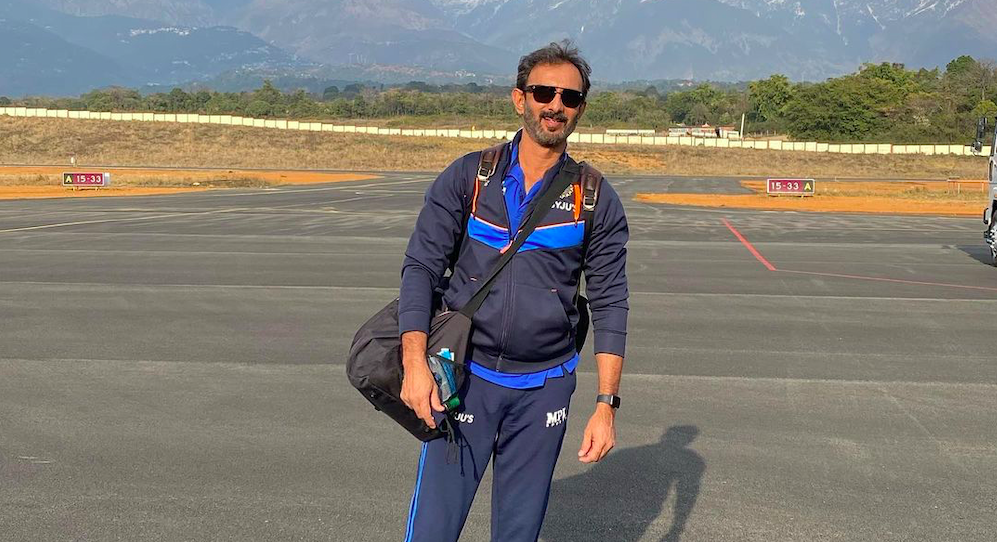On a day where the contemporary set of Indian fast-bowlers had one of their most expensive outings, visitors’ batting coach Vikram Rathour said the batters, too, didn’t do themselves justice by folding for only 245 and giving England a road to recovery in the Edgbaston Test.
Having taken a lead of 132 runs at the end of the first half, India were expected to bat England out of the contest with a target of near 500. But the visitors had an insipid outing with the bat in hand, as their last seven wickets could muster only another 120 runs on the board.
Later, India saw their seamers getting dispatched left, right and centre of the ground in Edgbaston for 259 runs in just 57 overs, with England whipping out a significant portion of the 378-run target, losing only three wickets in the process.
Also read 👉 Imperious Bairstow, flawless Root outclass India to pull off England’s record chase
With the hosts’ two in-form batters Joe Root (76*) and Jonny Bairstow (72*) not out overnight, India now stand on the verge of conceding their highest-ever chase in a Test match and also losing a great opportunity to record their first Test series victory in England since 2007.
For Rathour, though, this baffling turnaround began with a poor batting effort where Indian batters left much to be desired in their approach, especially after lunch when they refused to take the game to England and allowed their bowlers to execute their plans.
“The plans didn’t work out. I’ll agree that we had a pretty ordinary day as far as batting is concerned. We were ahead in the game. We were in a position where we really could’ve batted them out of the game. Unfortunately, it didn’t happen,”
Rathour was quoted as saying by ESPNcricinfo.
“A lot of people got starts but really couldn’t convert. We were expecting one of them to play a big knock and have a big partnership but unfortunately it didn’t happen like that.”
As batting coach, Rathour was also mindful of the fact that England bowlers outfoxed the Indian batters with the short-ball ploy. Middle-order batter Shreyas Iyer once again fell to the bouncing ball, as did lower-order men Shardul Thakur, Mohammad Shami and stand-in skipper Jasprit Bumrah.
This was an unerring similarity in the way India conceded their first-innings advantage into losing the series-decider in Cape Town against South Africa earlier this year, with tall Proteas seamers doing the Indians in with some disconcerting bounce.

Rathour said India needed to be better with their “strategy” in handling the short balls aimed at their bodies and survive longer at the crease to try and take the game further away from England. Instead, India went 7 for 92 after being in a position of great strength at 153/3.
“Yes, they (England) used a short-ball plan against us in the field. We had to show a little better, not intent, but strategy. We could’ve handled it slightly differently. People tried to play shots but didn’t really convert or execute them well enough. They got out to that.
“We will have to rethink how we handle that next time in a similar situation, against similar bowlers who keep similar fields. We will need to have a better strategy against them.”
Rathour added
That said, a huge amount of blame for the paradigm shift in the proceedings falls on Indian bowlers, especially their first and second change pacers Thakur and Mohammed Siraj.
When the new-ball burst from Bumrah and Mohammad Shami didn’t work out, the Indians would’ve expected the Siraj-Thakur duo to provide them with some control. But Siraj went for 6.40 an over, while Thakur conceded runs at 4.70.


